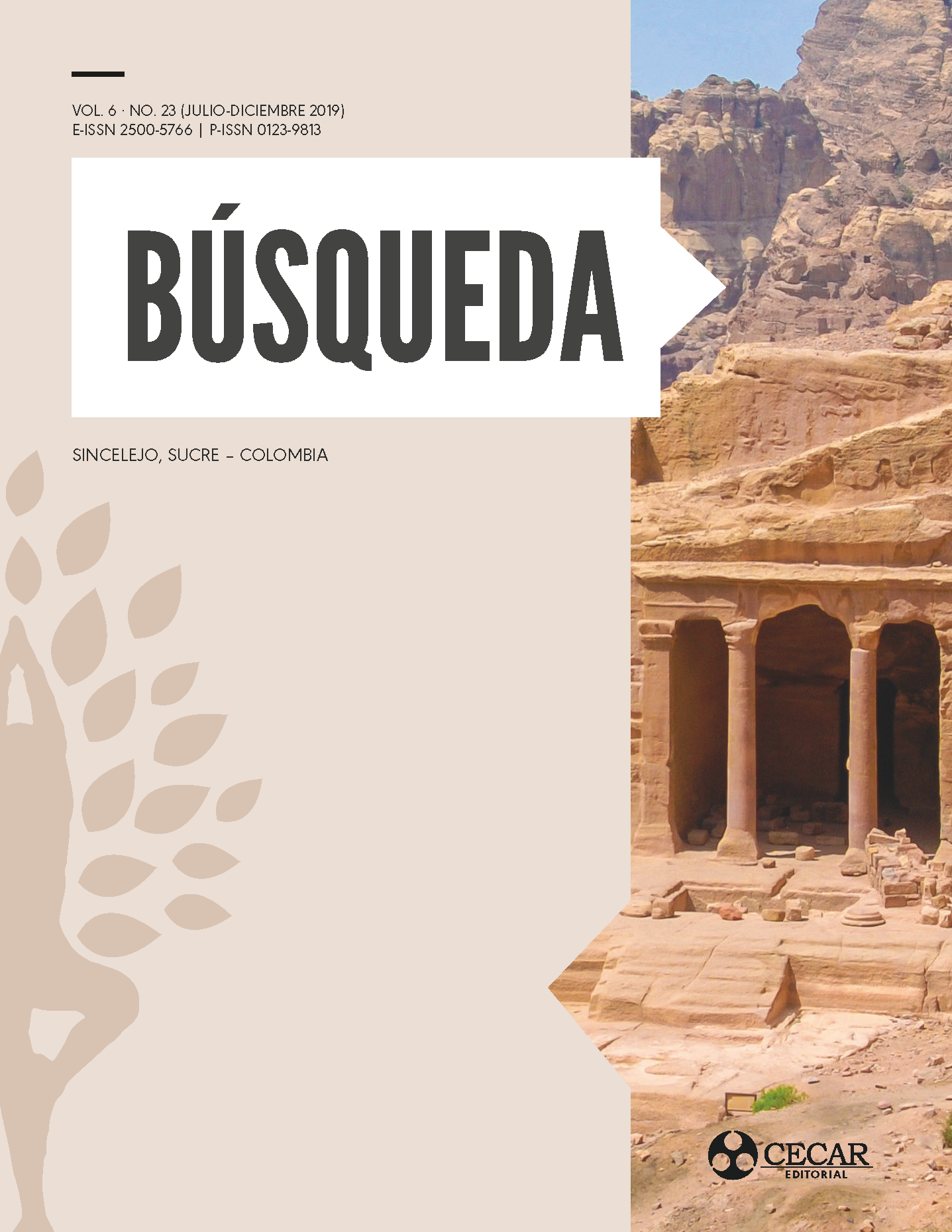Abstract
The results of a qualitative research about the understanding of the emotional bond between teenage mothers and their children between the ages of 0 and 5 are presented. A qualitative research was carried out, framed in the phenomenological-hermeneutical method, collecting data through two focus groups and four in-depth interviews with three participants. The main objective was to know the meaning that teenage mothers give to their ways of relating and establish links with their children between the ages of zero and five. And, through it, to understand the meaning they give to their experience of being teenage mothers; the way they interact with their children; to know the values that reaffirm or avoid in their children; to know the dynamics of care and well-being that prevail in relationships; and the role played by different actors in this process, such as grandmothers, parents, couples, peers and society.
Keywords:
Licence

This work is licensed under a Creative Commons Attribution-ShareAlike 4.0 International License.
References
Bensaja, E., Garcia, A., Neiva, L., Nieto, C., Koller, S. (2012). Características familiares y apoyo percibido entre adolescentes brasileños con y sin experiencia de embarazo. Universidad Federal Do Rio Grande.
Carrillo, S., Maldonado, C., Saldarriaga, L. M., Vega, L., Díaz, S. (2004). Patrones de apego en familias de tres generaciones: abuela, madre adolescente, hijo. Revista Latinoamericana de Psicología, 36(3), 409-430.
Coronado Mendoza, A. M., Ortiz Gómez, N. E. (2013). Rol materno y pautas de crianza en nueve madres adolescentes desde una perspectiva generacional, pertenecientes a las UPA de la Fundación Carla Cristina.
De Castro, A. (2003). Introduction to Giorgi´s existential phenomenological research method. Psicología desde el Caribe. Universidad del Norte.
De Castro. A. (2005). A Hermeneutical Understanding of Experience of Being Anxious. Journal Qualitative Research in Psychology, 2(2), 141 – 167.
Departamento Administrativo Nacional de Estadística. (2015). https://www.dane.gov.co/files/investigaciones/poblacion/cifras-definitivas-2015.pdf
Echevarría, M. (2015). Depresión postparto en Madres Adolescentes. Universidad de la Rioja.
Gago, J. (2013). Teoría del apego. El vínculo Escuela Vasco Navarra de Terapia Familiar. http://www.avntf-evntf.com/wp-content/uploads/2016/06/Teoría-del-apego.-El-vínculo.-J.-Gago-2014.pdf
Main, M., Solomon, J. (1986). Discovery of an insecure-disorganized/disoriented attachment pattern. In T. B. Brazelton & M. W. Yogman (Eds.), Affective development in infancy (p. 95-124). Ablex Publishing.
Mazuera, R. Trejos, A., Reyes, L. (2017). Percepción del embarazo adolescente en el Departamento Norte de Santander. Rev. Salud Pública. 19(6): 733-738.
Nieto, C. Á., Moreno, G. P., Abad, M. L., Martos, J. S., Olalla, L. R. (2012). Motivaciones para el embarazo adolescente. Gaceta Sanitaria, 26(6), 497-503. https://www.sciencedirect.com/science/article/pii/S0213911112000878
Ortega, A., Rodríguez, D., Jiménez, A. (2013). Equilibrio trabajo-familia: corresponsabilidad familiar y autoeficacia parental en trabajadores de una empresa chilena. Diversitas: Perspectivas en Psicología, 9(1), 55-64.
Peña, P., Villavicencio, L., Palacios, M., Mora, J. (2015). Maternidad adolescente y estilo de crianza actual. Acción pedagógica, 24, 62 - 72.
Profamilia. (2010) Encuesta nacional de demografía y salud. Tomo II. https://profamilia.org.co/wp-content/uploads/2019/05/ENDS-2015-TOMO-II.pdf
Rojas García, D. C. P.; Alarcón Ovalle, M. H.; Calderón, B. P. (2010). Vivencia del Embarazo en Adolescentes en una institución de protección en Colombia. Index de Enfermería, 19(2-3), 129-133. http://scielo.isciii.es/scielo.php?script=sci_arttext&pid=S1132-12962010000200012&lng=es&tlng=es
Secretaria de salud de Barranquilla. (2015). Plan de salud territorial distrito de Barranquilla. Análisis de la situación de salud-capitulo II. https://www.minsalud.gov.co/plandecenal/mapa/analisis-de-Situacion-Salud-Barranquilla-2012-2015.pdf
Vélez Arango, A. L. (2012). El embarazo en el adolescente: una visión desde la dimensión emocional y la salud pública. Revista Cuidarte, 3(1).
Vélez, E., Figueredo, L. (2015). Impacto psicosocial del embarazo en las adolescentes. Revista Educación en Valores, 1(23), 18. http://servicio.bc.uc.edu.ve/multidisciplinarias/educacion-en-valores/v1n23/vol23n12015.pdf#page=24


 PDF (Español (España))
PDF (Español (España))
 Epub (Español (España))
Epub (Español (España))
 HTML (Español (España))
HTML (Español (España))



